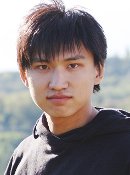
Physics graduate student Hao Zhou is a Fall 2015 recipient of the Dean’s Award for Outstanding Scholarship, as announced by the Graduate School.

Physics graduate student Hao Zhou is a Fall 2015 recipient of the Dean’s Award for Outstanding Scholarship, as announced by the Graduate School.
The Michigan Tech chapter of the Society of Physics Students (SPS) has been selected as one of the Distinguished SPS Chapters. The chapter here has been named either Outstanding or Distinguished every year since 2009.
The Michigan Tech chapter is part of Zone 09. SPS Chapter Awards are selected by Zone Councilors and Associate Zone Councilors of the SPS National Council. Some of the award criteria include outreach efforts and contributions to student recruitement and retention.
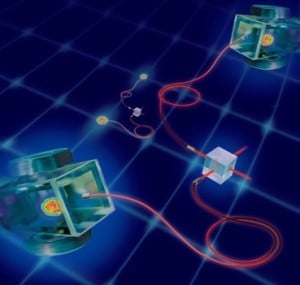
This course is a very elementary introduction to the concept of the photon and how it evolved since it was first introduced to solve the black body mystery. We will glance over Einstein’s contribution to developing the notion of the photon and and its statistical nature. Interestingly, Einstein later become a strong opponent to the very concept that he created. That will take us to his famous EPR (Einstein-Podolsky-Rosen) paper that declared quantum mechanics is incomplete. Moving ahead, we will study the ingenious work by John Bell who showed for the first time that the questions raised by Einstein can be tested experimentally. We will learn about some of these experiments and how the concept of photon entanglement was born. We will also discuss some interesting developments in the field, such as
and quantum communications.
Instructor: Ramy El-Ganainy
Course title: Quantum Optics for Huskies
Course credit: 1.0
Class time: Wednesdays 4:00 – 5:00 (subject to change later)
Course number: PH4999
Course description: An introduction to the concept of light quanta and its evolution over the past century; from black body radiation to photon entanglement and quantum communication.
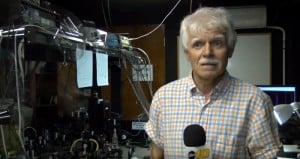
Local students will soon see big improvements in the physics department
Elizabeth and Richard Henes see great potential in Michigan Tech’s physics department. Five years ago, a Tech professor impressed them by using a mouse trap to demonstrate quantum mechanics.
“There are only certain states, like energy [or] velocity which are allowed for the molecule. A mouse trap has only 2 states. One when the spring is loose and one when it is, how do you call it, set. Mr. Henes said thank you for the lecture and handed us a check for seven hundred thousand dollars,” said Jacek Borysow, a Physics Professor at the University.
Read more and watch the video at ABC 10 UP, by Amanda L’Esperence.
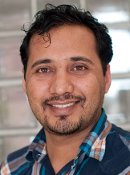
The Graduate School has announced PhD Candidate in Physics Kamal Dhungana has received a Doctoral Finishing Fellowship for Summer 2015.
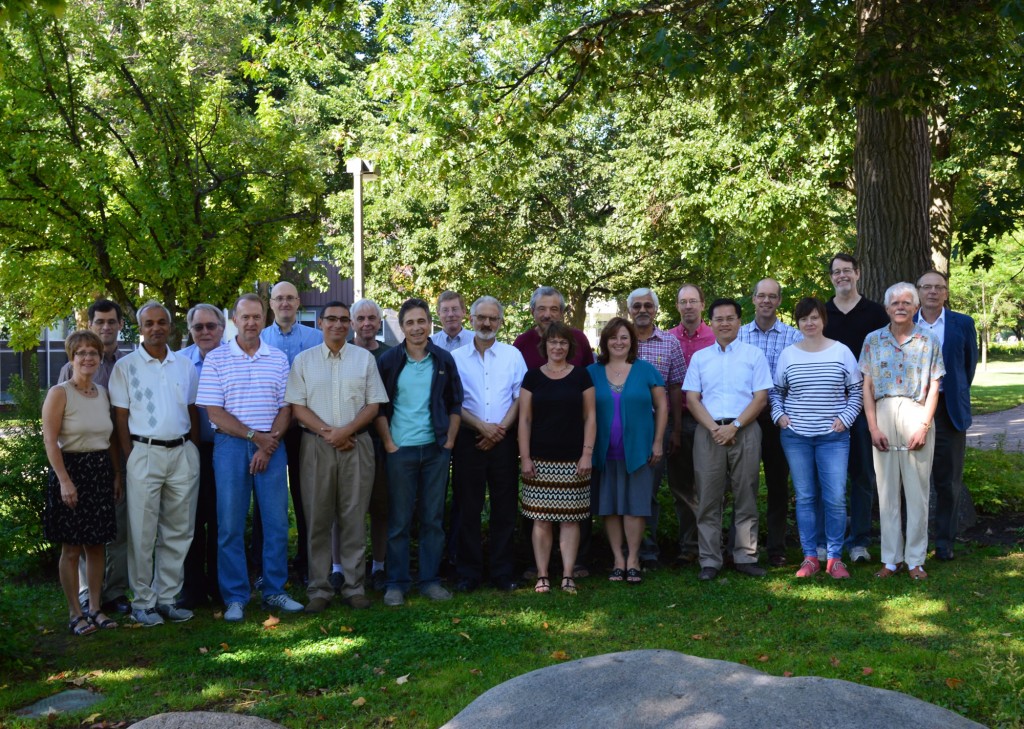
From left to right: Andrea Lappi, John Jaszczak, Ranjit Pati, Don Beck, Bob Weidman, Wil Slough, Ramy El-Ganainy, Brian Fick, Claudio Mazzoleni, Bryan Suits, Miguel Levy, Alex Kostinski, Debbie Linn, Kimberly Oldt, Ravi Pandey, Will Cantrell, Yoke Khin Yap, Ray Shaw, Petra Huentemeyer, Bob Nemiroff, Jacek Borysow, and Max Seel.
Find all of the faculty and staff of the Department of Physics.
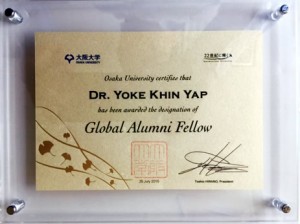
Yoke Khin Yap (Physics) was awarded by Osaka University in Japan with the title of Global Alumni Fellow. The newly established award is granted to alumni who are academically active overseas. Yap is among the first few honorees joining alumni from Purdue, Pennsylvania, Columbia, The National Institute of Health, Roswell Park Cancer Institute, Cambridge and others.
Yap has been an active alumni of Osaka University. He is one of the founding members and board of directors of the Osaka University North American Alumni Association (OU-NAAA) created in January 2006. OU-NAAA helps alumni in North America connect with the university, students and faculty through social and academic networking activities.
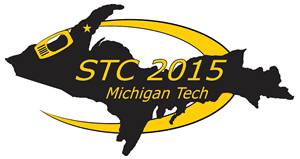 Mike Meyer gave the keynote address on Wednesday, June 17, 2015, for the Student Technology Conference held in Houghton this week. The conference concerns content-rich academic, computing, and telecommunications technologies in student living areas. The keynote address was entitled “The Transition to Teaching 24:7.”
Mike Meyer gave the keynote address on Wednesday, June 17, 2015, for the Student Technology Conference held in Houghton this week. The conference concerns content-rich academic, computing, and telecommunications technologies in student living areas. The keynote address was entitled “The Transition to Teaching 24:7.”
Meyer is a Senior Lecturer in Physics and the director of the Center for Teaching and Learning on campus.
The conference is a ResNet activity. ResNet is an international organization providing a forum for discussion, collaboration, and development for IT professionals in higher education. The conference runs June 16-19, 2015.
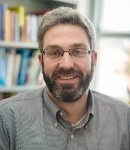
Michael Meyer, director of Michigan Tech’s William G. Jackson Center for Teaching and Learning, was quoted in an article in Inside Higher Education about how a professor should regain control of a class (or not lose control in the first place).
How Not to Lose Control of a Class
“I haven’t seen anywhere near somebody losing control to the extent we saw at Texas A&M as it’s been reported, but I have seen cases on different campuses where it’s very clear that the learning is done,” said Michael R. Meyer, a professor of physics and director of Michigan Technological University’s William G. Jackson Center for Teaching and Learning. “That happens when somebody says or does something that fractures the relationship with at least a significant proportion of the students, and there really isn’t a trust anymore.”
At that point, Meyer said, professors and students alike tend to go into “survival” mode, where the goal is simply getting through the end of the course. A common cause of such friction? Students feeling like they’re being held accountable for behavioral expectations that weren’t made clear to them, Meyer said. These expectations go beyond which assignments are due when. Rather, they address such behaviors as cell phone, computer and social media use in class, how to ask questions and what happens when someone shows up late.
“If you don’t address them, or talk about them with students, there’s bound to be bad feelings on both sides,” Meyer said.
Michigan Tech Employee Service Recognition Event
On Wednesday, May 6th, faculty and staff members, along with their guests, gathered at the Memorial Union Ballroom for an awards dinner recognizing 25, 30, 35, and 40 years of service to Michigan Tech.
Among those recognized for 25 years of service were Jacek Borysow and Alex Kostinski.